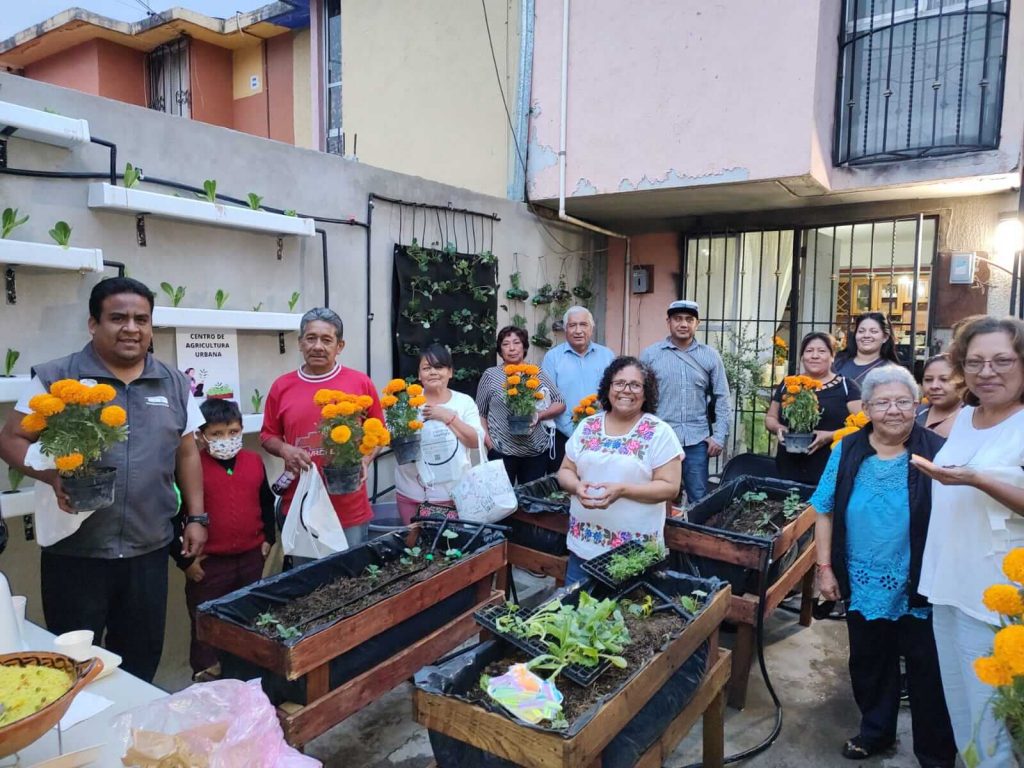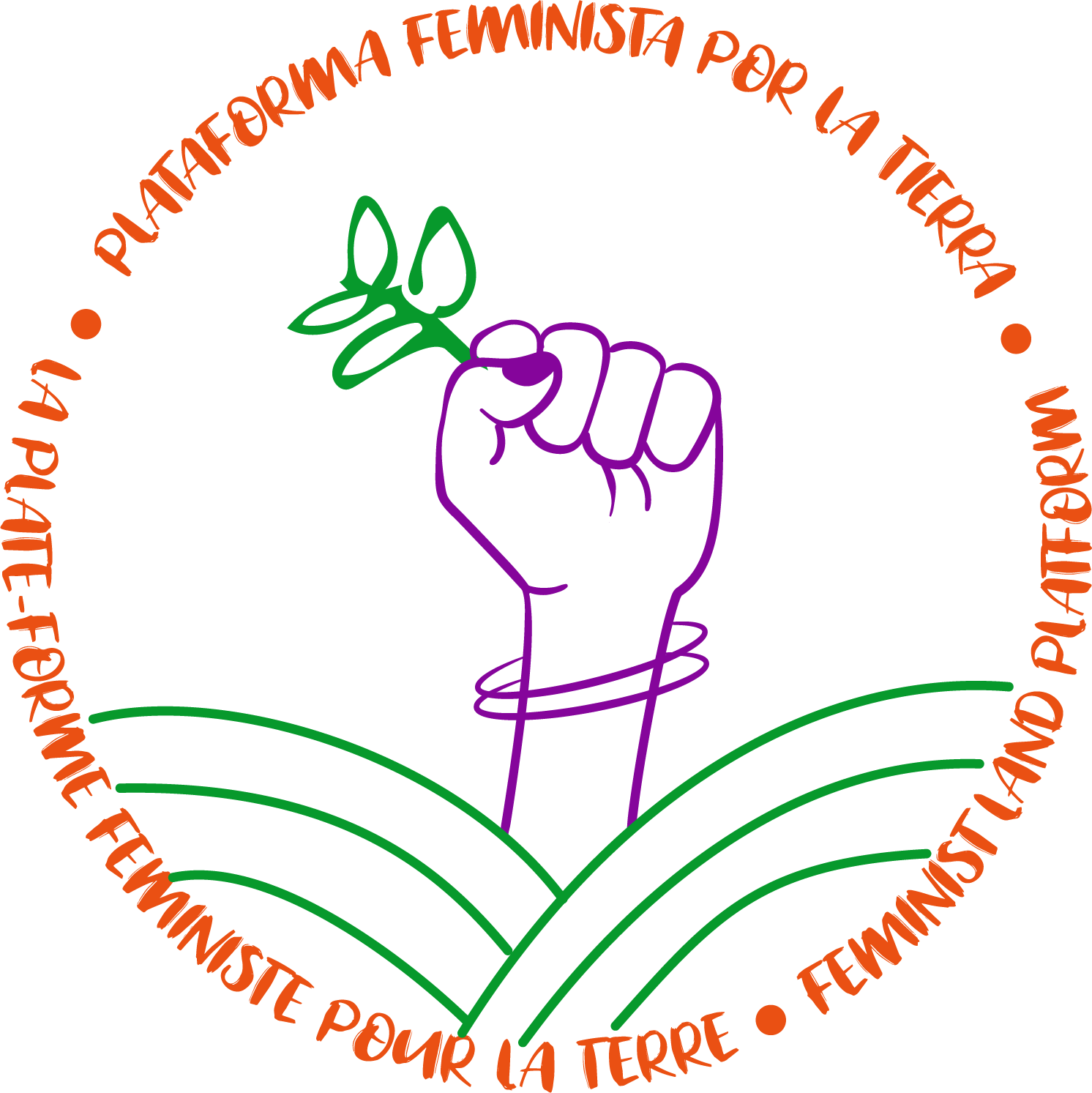Do you know the work of MUDECI (Women, Democracy and Citizenship A.C.), our member organization from Mexico? We’ve interviewed their general coordinator, Elsa María Arroyo Hernández, who shared with us their story, main areas of work, and strategies they take to tackle challenges. For more information about MUDECI, go to their website and read our article on their best resilience practices.

Can you tell us a brief history of MUDECI?
Our organization was legally established in 2013 by a group of university classmates and activists from the National Independent Committee for the Defense of Prisoners, Persecuted, Missing and Exiled People from Mexico. From a very young age we have joined civil activism in Mexico and have supported some of the hardest issues impacting society. Now we do so under the legal figure of OUR civil society organization, MUDECI (Women, Democracy and Citizenship A.C.). However, it is important to say that our work as activists has been going on for more than 37 years.
We are a civil society organization made up of women that contributes to the social improvement of the country, promoting respect for the human rights of women and girls, as well as promoting the development of citizenship to strengthen democracy.
What are MUDECI’s main areas of work?
The organization has three main areas of work: community climate resilience, economic empowerment, and prevention of violence against women and girls.
Under community climate resilience, we promote agroecological practices and urban gardens for food security through the project “Sowers of Hope: Urban Gardens for Food Security and Climate Community Resilience”. It focuses on increasing knowledge of local practices, promoting urban agriculture, implementing small-scale food production and generating community and climate resilience. In addition, the initiative empowers small producers and their communities as key agents for change. We also preserve the pre-Hispanic food wealth through the gastronomic and cultural event Festival del Quelite. Furthermore, we denounce the political use of water and its impact on women’s lives. For this reason, we usually say that “water has the face of a woman”.
Under the second area of work we develop several actions towards preventing violence against women and girls. We do urban outings to detect unsafe areas for women and girls and we also created a training, monitoring and territorial intervention program to provide legal and psychological aid to victims of violence in the Municipality of Ecatepec, which is called Brigadas Violetas. Through this program we carried out a community diagnosis in four neighborhoods using the methodology of the United Nations on safe cities, and for that we won the Voces Vitales Contra la Violencia prize. These neighborhoods suffer high degree of social marginalization, community violence, and lack basic services. The project aims to support networks within the communities that provide assistance and advice to women who are victims of violence.
Regarding economic empowerment, we work with women survivors of violence and improve their capacity on income generation in a project called Lonchito. It provides food service to companies and civil society organizations. The products are made by women who participate in our professional trainings, which allow them to have an income that reinforces their economic autonomy. This contributes to the eradication of violence against women and girls, favoring their autonomy to break free from the cycle of intergenerational poverty among women.
What are the main challenges MUDECI faces and how do you resist and organize?
A great challenge that we face as an organization is that in recent years there has been no financial support in Mexico for civil society organizations. In addition to this, grassroots organizations are not considered eligible to receive financing and implement technical cooperation projects. There is often the perception that grassroots community organizations are projects, instead of agents of change.
In this scenario, we have always relied more on the sustainability of the organization instead of depending on financing from external entities, and that is why we have our Lonchito project. In addition to empowering women, the profits from this project are also used in our programs, contributing to the sustainability of our organization.
Having the Lonchito as part of our economical sustainability for more than 11 years has allowed us to be independent regarding the projects that we implement and our political positions, since we do not require government financing for our activities.
Another challenge is the commodification of food systems, which along with other factors leads to food insecurity in many communities. That is why the Sowers of Hope project, which consists of the development and maintenance of urban gardens, is also a form of resistance.
With this project we promote community strengthening, landscape improvement, urban habitability, leisure, environmental education, the use of rainwater and the appropriation of public spaces, in addition to strengthening the understanding that the right to land is key to preserving diverse local food systems.
How does the Feminist Land Platform contribute to MUDECI’s work?
Being a member of the Feminist Land Platform (FLP) is very important for MUDECI because it gives us international visibility and also has an impact on the local and national work that our organization carries out in Mexico. Since our incorporation, we have been invited to events, colleagues and organizations ask us for opinions on issues that affect them, and if we apply for technical councils from government agencies, we have a better chance of being accepted.
Few grassroots organizations like ours have the opportunity to belong to an international network such as the Platform, which has allowed us to make our work more visible and also gives us recognition.
Likewise, being part of the FLP has given us the opportunity to get to know the trajectory of its other members. We have had many exchanges of experiences, but also technical advice by learning about the work of other colleagues. This process provides us with a broader vision and because of that we now have a greater global point of view of the work that we do.
Thanks to the FLP we also had the opportunity to participate in international events. We consider this to be a way to improve our skills and to learn about work experiences from other countries. For us this is important because it allows us to evaluate the projects that we implement at the local level in our communities so as to strengthen and expand them and correct what needs improving.
The financial support that the FLP provides us has also served to consolidate our practices and to systematize them by writing, making video clips, etc. Additionally, it has been very important because it has allowed us to advance and give visibility to the projects we have in Mexico, such as Sowers of Hope. Thanks to this support, the project has expanded its scope of action.,
So far, more than 100 girls and boys, 120 women and 12 men have been trained in agroecological practices, rabbit and free-range chickens farming and we have doubled the goal of serving 1,500 low-cost meals in our community kitchen. The project was selected as a case study by the International Institute for Environment and Development (IIED).

No comment yet, add your voice below!